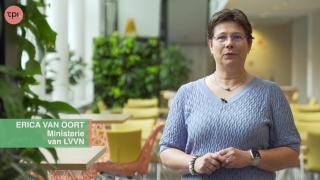Stem cell assays for animal-free developmental neurotoxicity assessment of compounds (video in Dutch)
Victoria de Leeuw worked as a PhD candidate in the research group of prof. Aldert Piersma at the RIVM between 2016 and 2020. Piersma's lab studies the effects of compounds on development of the embryo during pregnancy with among others stem cell cultures. The project of Victoria was aimed to differentiate embryonic stem cells (of mouse and human origin) into neurons and astrocytes, which could mimic small parts of embryonic brain development. These models were able to show some of the known toxic mechanisms induced by these compounds, congruent with what they we hypothesised to mimic. Therefore, these two stem cell assays make a useful contribution to the animal-free assessment of developmental neurotoxicity potential of compounds.
Researcher: Victoria de Leeuw op het RIVM.
Video: Sophie Koster Videoproducties
New

Helpathon #12 – Can you help Erica?

The NAM Navigator: A unique repository for information on the validation and acceptance of New Approach Methodologies
